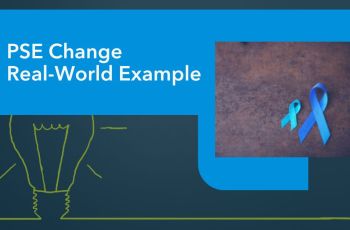This work was supported by Cooperative Agreement #NU58DP007539-01 from the Centers for Disease Control and Prevention (CDC).
Early Detection and Treatment
At the time of this initiative, West Virginia ranked third and fourth in the country, respectively, for new cases of lung cancer and deaths from lung cancer. The Mountains of Hope Comprehensive Cancer Coalition prioritized lung cancer screening in the 2016-2020 West Virginia Cancer Plan and…
South Carolina’s Department of Health and Environmental Control, Division of Cancer Prevention and Control, worked with internal and external partners to implement a workplace on-site screening program to counter low breast cancer screening rates.
The New York State Department of Health engaged community partners and built support for paid leave policies for cancer screenings in worksites, which resulted in numerous entities implementing paid time off policies.
The National Cancer Plan (2023) provides a comprehensive framework for this meaningful collaboration and unites us in acting on the vision President Biden and First Lady Biden set out in the Cancer Moonshot℠ to end cancer as we know it.
Due to high rates of colorectal cancer (CRC) incidence and low screening rates in Kentucky, the Kentucky Cancer Consortium launched a focused initiative to improve CRC screening rates in the state.
In Kentucky, colorectal cancer was the second-leading cause of cancer death; incidence rates were also high. The work of the Kentucky Cancer Consortium over 5 years resulted in the legislatively established Kentucky Colon Cancer Screening Program.
To support increased cancer screening, the Indiana Cancer Consortium developed a certification program, recognizing workplaces that implement policies supportive of cancer prevention, such as age- and risk-appropriate cancer screening and early detection.
These systematic reviews recommend interventions that engage community health workers to increase screenings for breast, cervical, and colorectal cancer.
These Cancer Screening Change Packages support the delivery of cancer screening services for breast cancer, cervical cancer, and colorectal cancer.
This fact sheet and infographic provide strategies for supporting the Cancer Moonshot national initiative.





